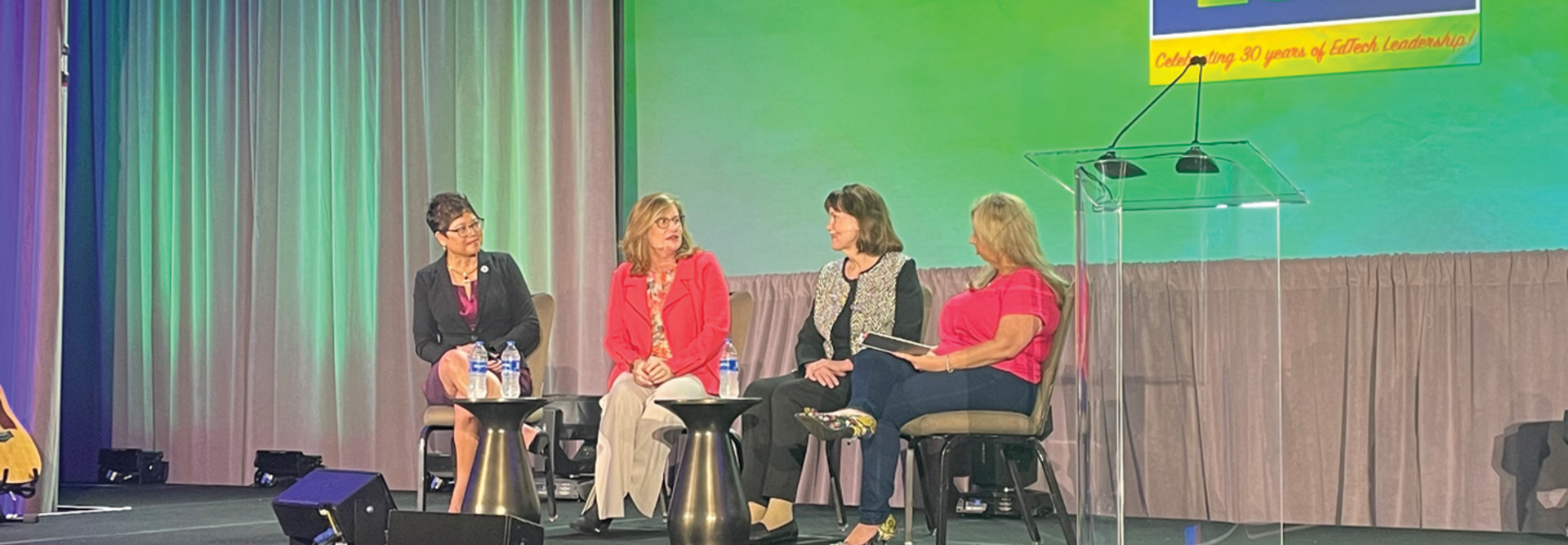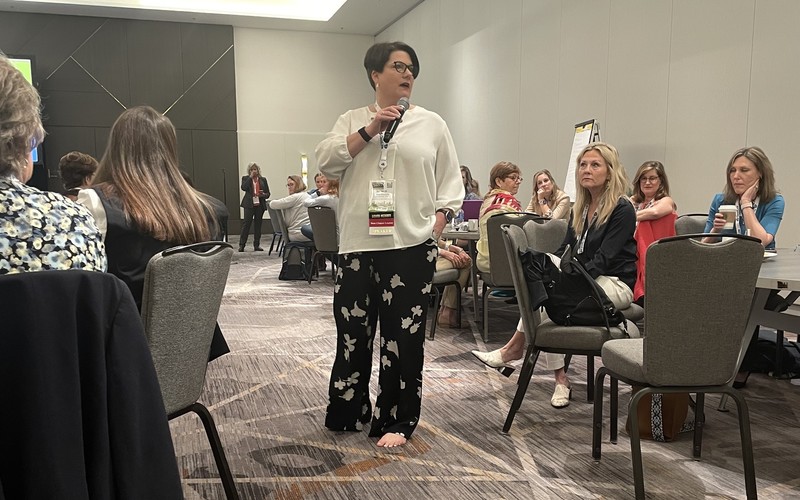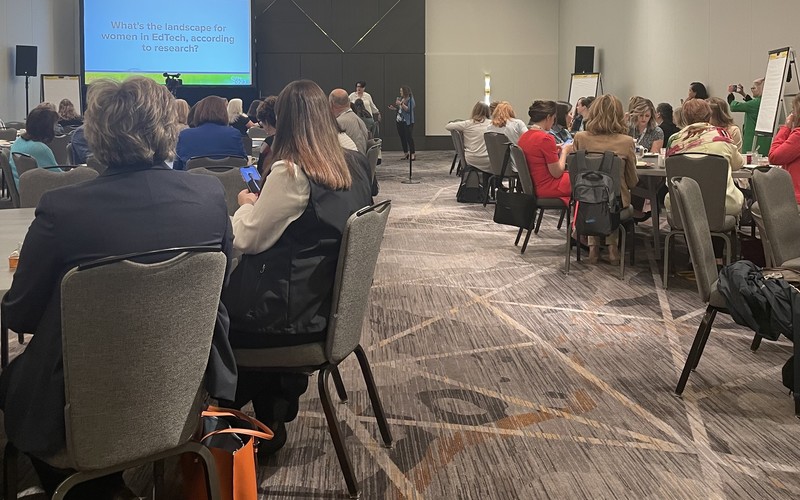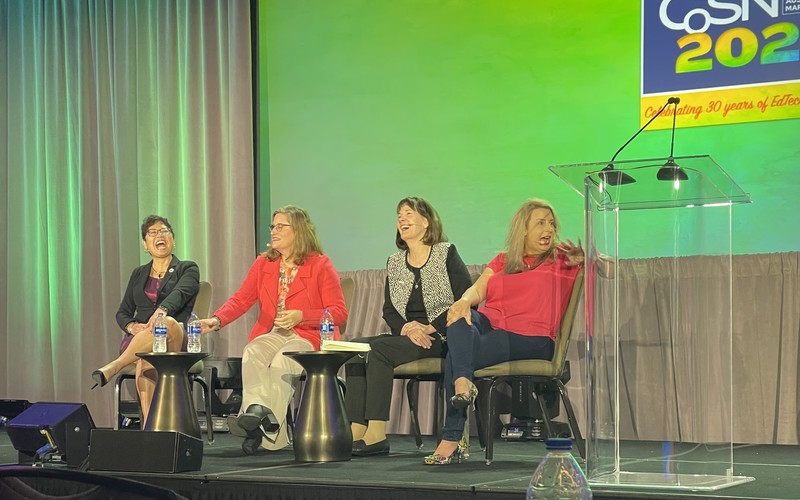There were complaints — of men who talked over women, men who repeated and took credit for women’s ideas, men who qualified their compliments with the words “for a woman” — but there was also surprising research revealed.
For example, women are more likely to benefit when they have a male mentor, said Ivy Nelson, instructional technology manager at Missouri’s Belton School District #124. She pointed to research by Belle Ragins, professor of management at the University of Wisconsin–Milwaukee, which has shown that women who have a male mentor are more likely to receive promotions, have higher income, report more satisfying relationships with co-workers and higher job satisfaction. They also stay in jobs longer.
“We have a lot of men who are hesitant to mentor women. There are a lot of elements to why a man might be hesitant to mentor women, or why a man might not realize that is something he should do,” Nelson said. “How can we advocate for ourselves and seek out male mentors?”
Mentorship Is Good, but Sponsorship Is Better
Diane Doersch, senior director of IT for Digital Promise, brought up the difference between mentorship and sponsorship during “A Candid Conversation with Female Leaders in IT.” Speaking with Truesdale and fellow panelists Erin Mote, executive director of InnovateEDU, and Serena Sacks-Mandel, global CTO for Microsoft, Doersch said that men need to step up and embrace sponsorship of their female colleagues.
When Mote inquired about the difference between mentorship and sponsorship, Doersch elaborated: “Sponsorship is using your influence, as a man or someone in position of authority, to get someone’s name out there.”
EDTECH INTERVIEW: Diane Doersch speaks up about digital equity in schools.
She didn’t deny the importance of mentorship but said that it’s more important and more powerful to talk about someone’s skills when they aren’t in the room.
Sacks-Mandel added that sponsorship is necessary throughout the course of a woman’s career, not only when she’s in an entry-level position.
The panelists also noted that, while it’s important for men to practice sponsorship, anyone can do it. Truesdale talked about how she used to pull receptionists and young (usually female) colleagues into leadership meetings. “That ruffled some feathers along the way of people who were between that level and mine, and I said, ‘I need authenticity at the table in case someone asks me a hard question.’ That was my excuse for bringing someone into a meeting,” she said.
Why Do Women in Tech and Leadership Need Male Allies in the Room?
A handful of male attendees joined the Women in IT Breakfast, listening to and encouraging women in conversations.
As one table in the room discussed other research Nelson had shared on how women tend to “climb and kick” rather than “climb and lift” one another, Shawn Sellers expressed surprise.
“I’ve never heard of that,” said Sellers, director of vendor managements at Netsync Network Solutions. “I learned something new today.”














